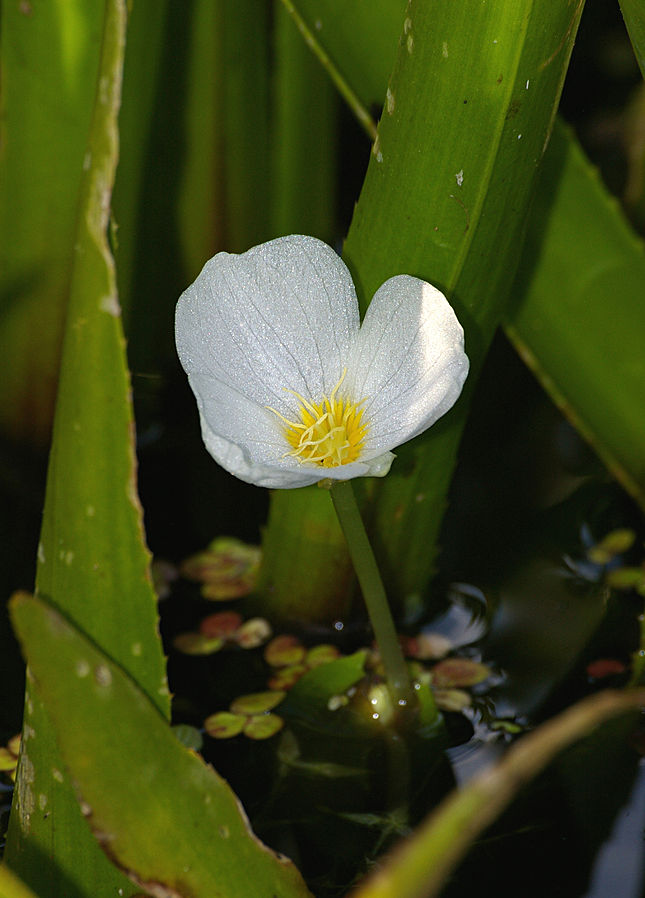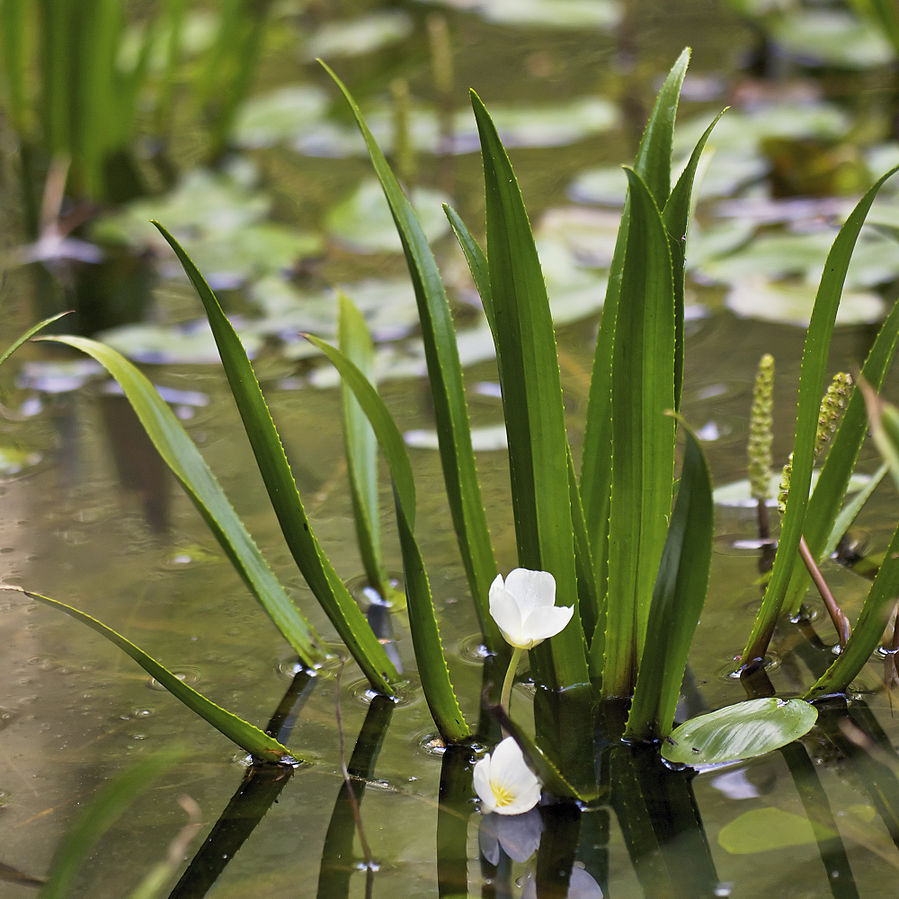Water Soldier

Water Soldier
(Stratiotes aloides)
Priority: - Prevent / EDRR
Tags: Aquatic
Identification and Reproduction
Identification:
- Water soldier is a submerged aquatic plant.
- Leaves are serrated, lanceolate, up to 40 cm long and found in a tuft-like rosette.
- Produces small, white, 3-petaled flowers in the summer.

- Roots can but may not be attached to the bottom of the waterbody.
Reproduction:
- During the fall this plant will secrete slimy calcium carbonate and sink below the water surface. By fall this plant will rise and float again.
- This plant is dioecious; female and male reproductive systems occur on separate plants, so seedset rarely occurs since both female and male plants must be present.
- Reproduction primarily occurs vegetatively from extending offshoots.
Habitat & Ecology
- Commonly found in wet ditches and ponds.
- Plants can grow in waters up to 5 m deep.
- Currently, the only known water soldier infestations in North America is found in Trent River and Black River in Ontario.
Impacts
Social:
- Floating mats can restrict recreational activities, such as boating, fishing and swimming.
- The sharp leaf edges can also cause cuts to swimmers.
Ecological:
- Can form dense mats that out-shade native aquatic organisms below.
- Crowds out native vegetation.
- Dense infestations will also change hydrological properties.
Management
Prevention is a high priority for this species.
- Since the known infestations are in Ontario it is crucial to prevent the spread.
- Do not buy, plant or distribute water soldier.
- Avoid traveling through infested sites.
- Never discard aquarium material into natural waterbodies.
- Always clean, drain, and dry aquatic equipment like boats or canoes before transferring from one body of water to another.
- If you suspect a plant is water solider, report it.
Resources
For more information check out Ontario's Invading Species datasheet on water soldier here.
Download Ontario's Invading Species factsheet for Water Solider here.
Header photo (Velela).



